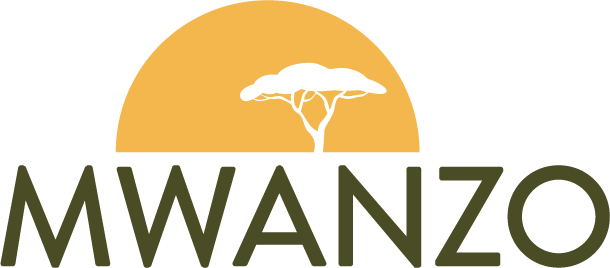New Beginnings

A Community Approach
What We Do
When the HIV/AIDS epidemic struck sub-Saharan Africa in the late 1990s and early 2000s, it devastated a generation, leaving hundreds of children orphaned and placing enormous stress on survivors. In rural villages of Western Kenya, young girls in particular were left without support systems or role models to teach them farming and other essential life skills. While many of these girls lost the opportunity to attend school, a generation later, they now enroll their children at the Mwanzo Wetu Center of Excellence Academy (recently renamed from Mwanzo Education Center), participate in village savings and loan programs, and work for the local catering enterprise. Mwanzo honors and centers the talent and knowledge of local people. All of our programs focus on community-identified needs, and local stakeholders are central to program development and operations.
building tomorrow’s leaders
Education
Located in Rabuor, the Mwanzo Wetu Center of Excellence Academy (MWCEA; recently renamed from Mwanzo Education Center) is a private early childhood development (ECD) program and two-story primary school that serves 285 students ages two through eighth grade. Students learn from certified teachers, receive two hot and nutritious meals each day, and participate in extracurricular activities that promote knowledge sharing and global citizenship. Prior to the establishment of MWCEA, there was no primary school in Rabuor that provided students with nutritious food. For many students, the meals at MWCEA represent the only food they receive during the school week. MWCEA is more than a school. The presence of a unique building – offering high-quality curriculum, daily hot meals, water cisterns, and sanitation – sparks immense community pride. Mwanzo’s vision for MWCEA is that it will become a center of excellence, where young people can learn skills that will prepare them for rewarding careers in Rabuor and beyond.
Fostering financial resilience
Entrepreneurship
Mwanzo fosters financial resilience through a number of women-led entrepreneurship programs. Village savings and loan (VSL) programs allow women to access group savings and low-interest loans. Through peer-to-peer mentorship and training, Mwanzo’s first VSL group blossomed into a network of dozens of VSL groups that meet regularly throughout the week. On average, program participants exchange $3,000 each year. Members of these VSL groups established the Mwanzo Wetu Catering Service, which serves as an innovative, income-generating enterprise. The catering service owns three large, locally-made tents that allow the business to serve the community even in the midst of rain and heat. Wetu not only responds to the high community demand for catering services at weddings, graduations, and funerals, but it also provides alternative employment opportunities for farmers whose livelihoods have been threatened by climate change.
Nurturing Bodies & Minds
Health
Approximately 15% of Mwanzo Wetu Center of Excellence Academy (MWCEA) students are HIV-positive. These students make frequent trips to a health clinic in nearby Chulaimbo Village, where doctors prescribe antiretroviral therapy. This medication helps HIV-positive children live longer and healthier lives, and MWCEA teachers ensure that they receive and take this medication with food while at school. If a student tests positive for malaria at the Chulaimbo clinic, MWCEA will provide free medication for treating the disease. MWCEA teachers receive specific trainings from the Ministry of Health and learn to deworm children, administer dehydration pills, and provide care for students in the event of a cholera or typhoid outbreak. Furthermore, public health officers often visit MWCEA to administer Vitamin A and deworming tablets, and to ensure that the school rooms and kitchen meet government standards.
Adaptation to Climate change
Agriculture and Environment
Rabuor and its neighbors are subsistence farming communities. Farmers depend on the food they grow to feed their families and earn income. The Mwanzo Poultry Project plays a major role in local agriculture. This chicken husbandry program provides tools for farmers to build coops outside of their homes and mitigate risks by spreading the coops across several locations. The Poultry Project provides families with healthy protein, offers an affordable source of manure to enhance kitchen gardens, and promotes economic development as farmers sell chickens and eggs to community members and the Mwanzo Wetu Catering Service. Extreme weather in the region can range from heavy rains and flooding to drought. In the midst of these challenges, Mwanzo mobilizes community members to learn best practices for mitigating army worms’ attacks on crops and selecting appropriate fertilizers for the region’s soil. At the Mwanzo Wetu Center of Excellence Academy, cistern tanks collect rainwater, improving the water supply for students and community members, preventing flooding and erosion, and reducing the miles women travel to retrieve water for drinking, cooking, and sanitation.






